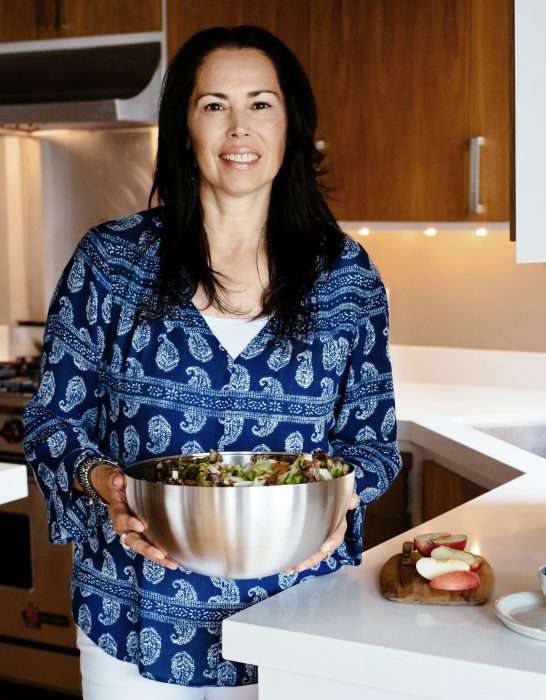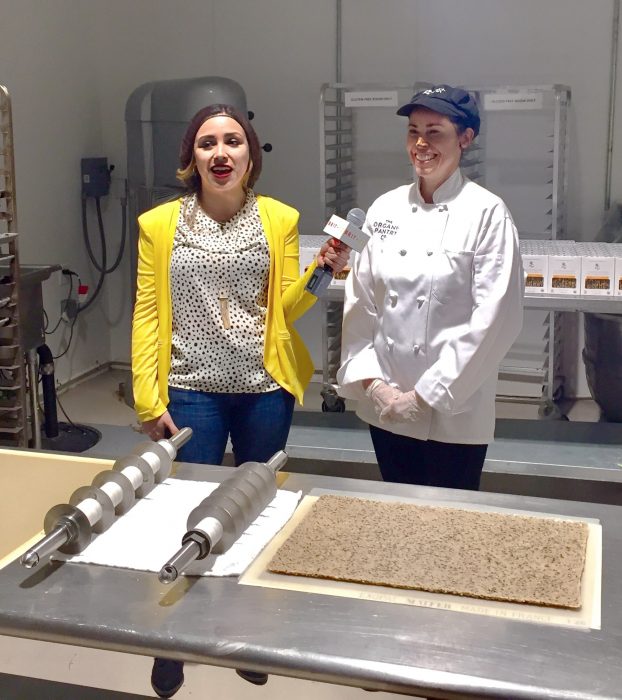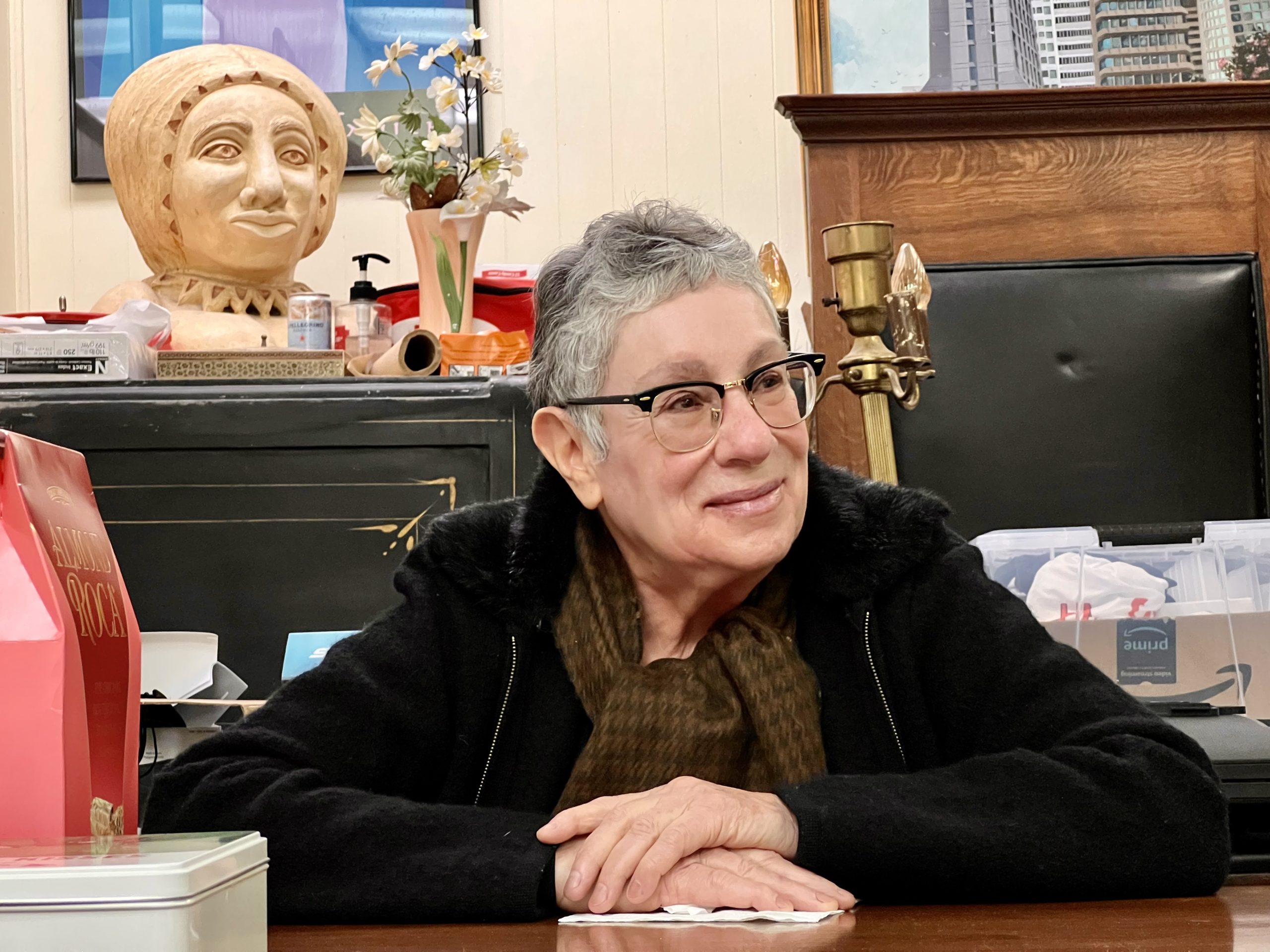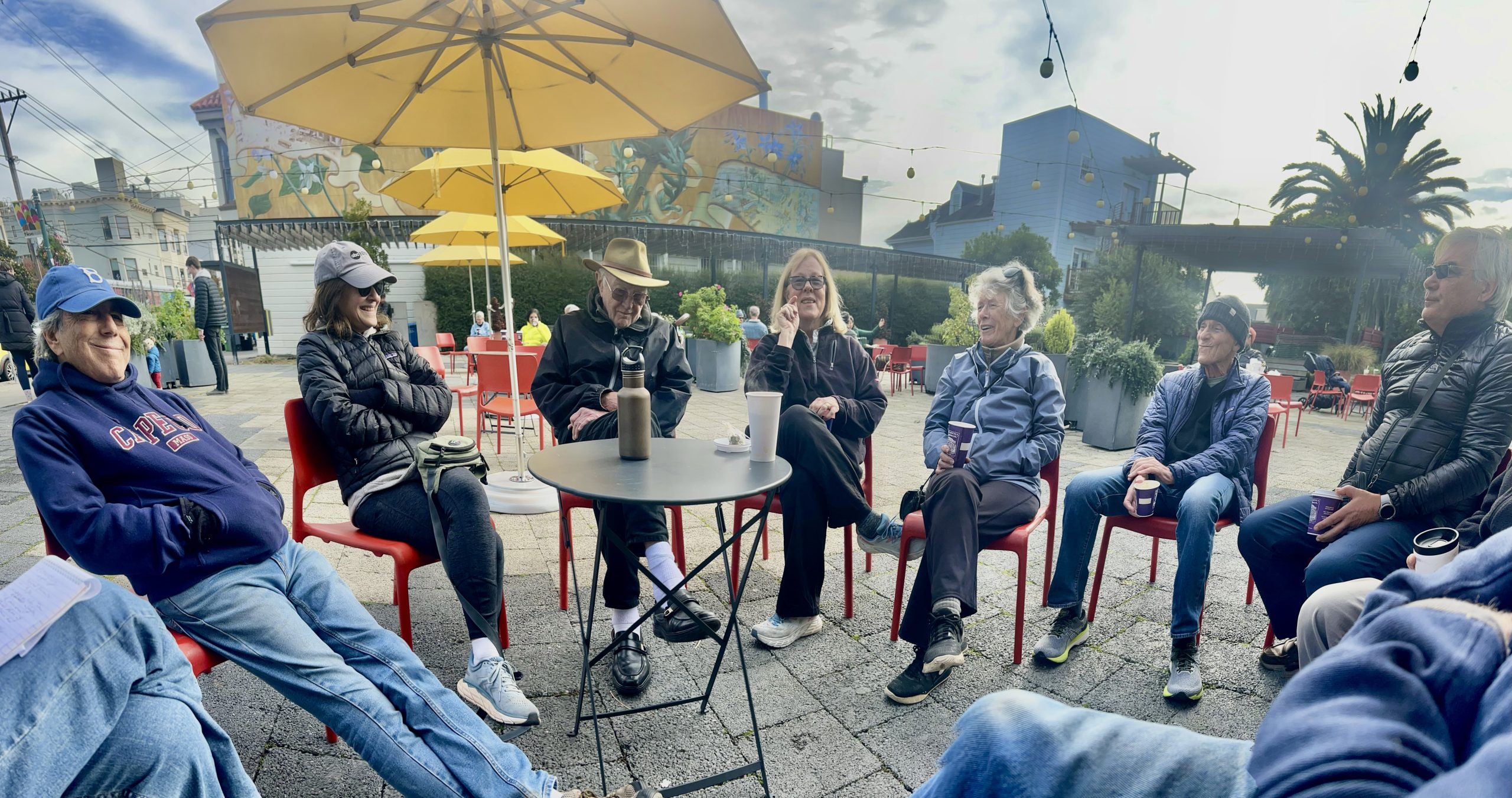Former Gap exec aims to democratize organic food, starting with her line of granola and crackers test
Over 30 years, Theresa Petry vaulted up the rungs of retail, from vice president at Restoration Hardware to director of merchandising at the Gap. She oversaw retail stores that spanned the U.S. – Mervyns, TravelSmith, Joyus.com – most with a focus on fashion.
“I was successful throughout my career in retail and in each job was promoted to more elevated positions,” she said.
Fast forward a few years and Petry is founder and CEO of Organic Pantry Co., producing artisanal crackers and granola.

That’s not as radical a departure as it may seem. “I was always a foodie,” said Petry, 58. “My mother was a great cook.” However, “My mom does not believe in eating organic, gluten free, etc. She grew up on Mexican food and that is the basis of her diet. I grew up on this diet and changed it in college.”
While working as an executive, she brought her tantalizing concoctions to work for lunch. “Co-workers would say, ‘Can I have some of that?’” She gave jars of her homemade salad dressing as Christmas gifts. “I called it Salad Blessing,” she said.
But she has goals in addition to ameliorating the American diet. “I used to make millions of dollars for big corporations,” she said. “So now I want to do the same for myself.”
The research begins
She went to work researching what it would take to launch an organic food business.
“I was working full time at Joyus.com and just cooking on the weekend,” she said. “I got into the Wholefoods Local Forager program in San Francisco and was gaining traction when I got laid off so I decided to take a leap of faith and go for it.”

Granola came first. A year after Whole Foods Market began selling it, they enthusiastically put her crackers on their shelves.
“It was not difficult because they liked our granola and were open to trying our crackers,” she said. “Their buyer liked them right away.” In fact, the crackers sold so well “we had to put the granola on the back burner to keep up with the cracker demand.”
Most such products did not meet her standards, “so I made them myself.” She concocted the recipe at home over a six-month period, trying ingredients in various combinations.
In both Organic Pantry’s crackers and granola, “we use only four ingredients: sprouted flax seed, quinoa flakes, pumpkin seeds and sunflower seeds,” Petry said. “Everything is a superfood.”
She began scouting for a commercial kitchen, and found one in Kitchen Town, a 20,000-square-foot incubator for food start-ups in San Mateo.
“She’s been at this for a few years,” said Kitchen Town founder and CEO Rusty Schwartz. “She’s been great at bringing better-for-you foods to the public. It’s been a real challenge because food is expensive, and she is unwilling to compromise (on quality). But she’s managed to pull it off.”
Selling in Whole Foods
Petry hatched Organic Pantry five years ago, and now has a contract with all the Whole Foods markets in Northern California.
It been a much harder journey than her climb up the retail corporate ladder, largely because she doesn’t have the capital to launch the accelerated growth she has planned. “I have bootstrapped my business for each phase of growth.”
Yet, it is more satisfying because it is her own creative vision that she is building on, “and our food is healing people as well. We all have enough clothes but food scarcity is a real problem and so are highly processed foods that cause diseases and obesity in this country. I would like to democratize organic food as a long term goal.”
She oversees a staff of four. Her 20-year-old son, Nico, a student at Northwestern University’s Medill School of Journalism, pitches in on Fridays and for specialty events.
“It helps me realize how much work she does,” he said. “She wears four or five hats. We’re a family-owned business and that fills me with pride and joy. She’s involved every step of the way.”
Ready for the Shark Tank
Petry combined her experience running the Gap, a $300 million business, with advice and a loan from the Small Business Development Center to formulate her business plan.
Pasta giant Barilla/Wasabröd has invested in Organic Pantry twice, flying her to Europe to examine the possibilities there. “They love her and they love her product,” Schwartz said. But the likelihood of breakage during transit ultimately ruled them out.
She considered approaching Shark Tank, a reality show in which self-made tycoons field ideas from budding entrepreneurs eager to win financial backing. She would have asked them for $500,000 in exchange for 10 percent of the company’s equity position.
She shot the 15-minute video they asked her to submit. But then the corona virus and subsequent shelter-in-place drove everyone indoors.
According to CNBC’s business program “Make It,” some 45,000 people apply to appear on the show every year. But less than one percent of applicants get to pitch their idea to the sharks — and of that group, only a handful actually make it on TV.
The show, already in pre-production at an undisclosed location in Sin City, is employing a quarantine bubble, keeping the stars and crew within a single facility with COVID-19 safety protocols, including testing, in place.
“I know the studios went dark for all of April and May. And I wasn’t scheduled until 2021 anyway,” Petry said. “So, I can’t sit around and wait for Shark Tank.”
Food production ‘on fire’
It’s hard to imagine the lively Petry sitting around and waiting for anything. Already, she’s been approached by American and Alaska/Virgin airlines to make in-flight snacks.
As slim as a teenager, with a hearty laugh and dark hair that reflects her Mexican parentage, Petry always thought she would be a writer. She majored in English literature with a special focus on Shakespeare, spending a summer in England and enjoying its Old Globe Theatre.
Organic Pantry sells 1,800 boxes of crackers a week and could sell closer to 300,000 given a larger manufacturing plant. “I had no idea how difficult it would be to find a factory,” she said.
Only 10 food factories in the nation are both certified organic and gluten-free. Anyone who bought Organic Pantry would likely opt for a Ritz factory and reformulate the recipes.
Not Petry.

A search for an automated cracker factory yielded a great find in Sandusky, Ohio. At 150,000 square feet, it has enough production capacity to move to national distribution in all the natural & organic grocery stores.
The Sandusky plant’s owners, a “lovely couple in Santa Barbara,” will produce the food items, package them and ship them to their destinations. Petry is slated to do a test run at Sandusky in October, which comes at a cost of $7,000 a day. “We have to make sure this plant will work,” she said.
Today, most start-ups are tech companies. But “food production is on fire right now,” Petry said. “Who knows what’s going to be happening? Whole Foods is doing well. I’d like to get into Costco. We’d have to make a less costly product, smaller quantities.”
Ultimately, she envisions a line of 10 products, including chips, condiments, and cookies.
Asked whether anyone tried to dissuade her from taking on the project, she roared with laughter.
“Everyone,” she said. They cautioned it would be “a long, long road.” But “I’ve always had a lot of self-confidence.”





